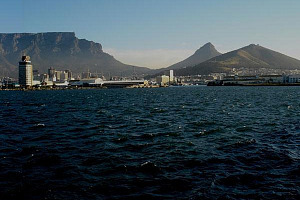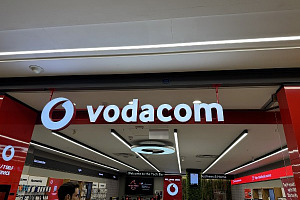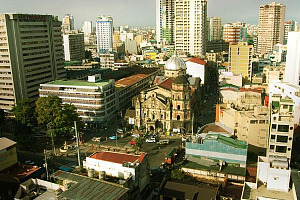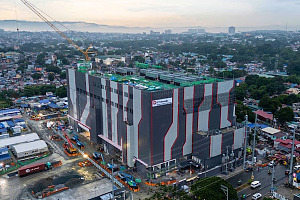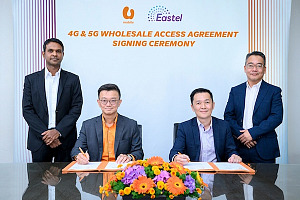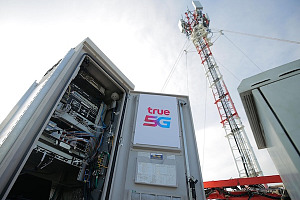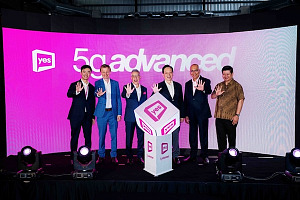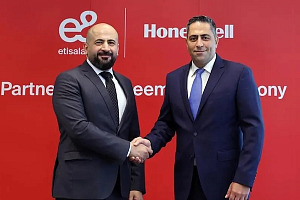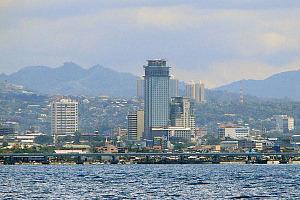U Mobile defended its qualifications to run the country’s second 5G network on Sunday after enduring a week of criticism from rivals, industry analysts and politicians who expressed bafflement at the government’s decision to give U Mobile the nod.
On November 1, the Malaysian Communications and Multimedia Commission (MCMC) picked U Mobile to implement Malaysia’s second 5G network to compete with original 5G operator Digital Nasional Berhad (DNB).
The result came as a surprise to rival telcos Maxis and CelcomDigi – both of whom were in the running – and industry observers and financial analysts who had tipped either Maxis or CelcomDigi as the likely winners.
Most of the criticism has focused on the fact that U Mobile is the youngest and smallest of the contenders, having only started services in 2007. According to news site Soya Cincau, U Mobile has said it currently runs more than 10,000 mobile sites and had over 9 million subscribers as of the end of 2023. CelcomDigi has 25,000 sites and 20.2 million subscribers, while Maxis has over 11,000 sites and 12.7 million subscribers.
Last week, the MCMC issued a statement defending the decision, saying that the decision was “based on a combination of factors”, from its business and technical plans, consumer complaints and satisfaction records to its performance in carrying out other infrastructure initiatives, including Universal Service Provision (USP) projects such as JENDELA Phase 1 and other 4G upgrade projects.
However, the statement didn’t go into specifics and raised more questions than answers. On Friday, Dr Ong Kian Ming, former Deputy Minister for International Trade and Industry (MITI), issued a statement calling on the MCMC, Communications Minister Fahmi Fadzil and Digital Minister Gobind Singh Deo to release more details on the tender process and the scoring method to determine the winner.
Meanwhile, U Mobile Chairman Vincent Tan defended the telco’s ability to roll out the second 5G network in a column published on Sunday in Malaysian business news publication Business Today.
Among other things, Tan cited U Mobile’s 95% network population coverage, its success in the JENDELA and USP programmes, and its ability to undersell the competition, particularly with 5G.
“As the first telco in the country to offer 5G service at no additional costs for all Malaysians and consistently offering similar services at 20-25% cheaper than competitors, U Mobile’s aggressive investments and innovations have and will continue to challenge our competitors resulting in cheaper and better services for all Malaysians,” Tan said.
Funding questions
Tan also reiterated earlier comments from MCMC that the second network will be funded entirely by U Mobile, as opposed to being subsidised with taxpayer money, as was the case with DNB.
That said, critics have also questioned U Mobile’s ability to fund a new 5G network rollout. According to The Edge Malaysia, CIMB Securities said in a research note last week that U Mobile would need to invest up to MYR3 billion (US$681 million) over 18–24 months to cover 80% of the population, and MYR1 billion a year after that, which is higher than U Mobile’s average capitalised capex of MYR500 million per annum between FY2014 to FY2023.
CIMB Securities added that U Mobile will need a strong financial partner to share the cost, “given U Mobile’s higher net debt-to-earnings before interest tax, depreciation and amortisation ratio at 4.3 times, compared to Maxis’ (2.2 times) and CelcomDigi’s (2.1 times).”
In his column, Tan said that U Mobile recorded a higher revenue of MYR3.5 billion and higher net profit of MYR102 million in 2023, with increased operating cash flows of MYR1.2 billion. U Mobile’s total assets stood at MYR6.2 billion with a total share capital of MYR2.6 billion.
U Mobile issued a statement on Sunday adding that it has “robust financial backing from its shareholders, financial institutions such as UOB, CIMB and AmBank, as well as strategic vendor partners who enable the telco to continuously innovate to stay competitive and to meet network deployment targets.”
U Mobile also confirmed that its biggest shareholder – Singapore-based Straits Mobile Investments (a subsidiary of ST Telemedia), which owns a 48.3% stake – has agreed to bring its share down to 20%.









